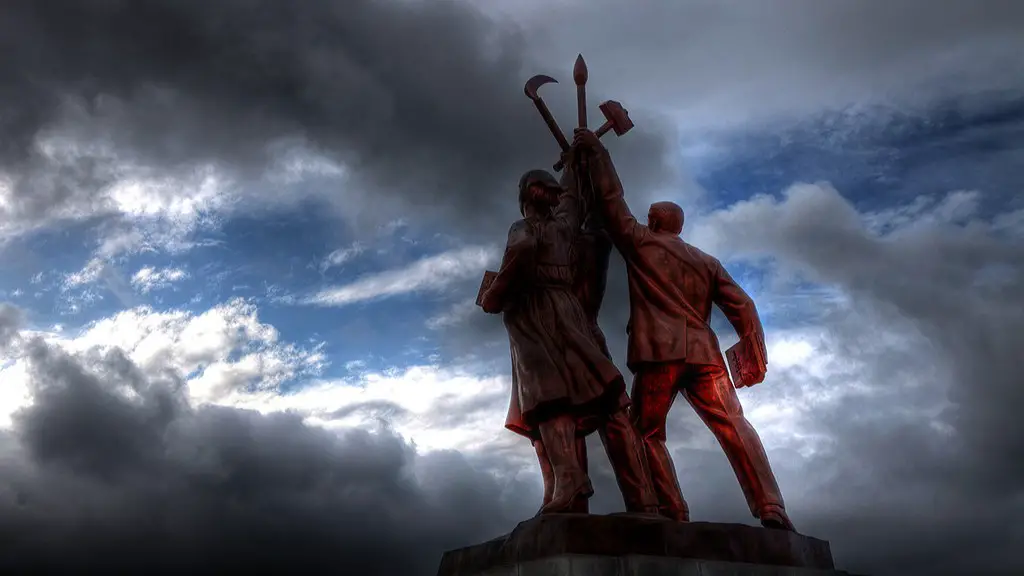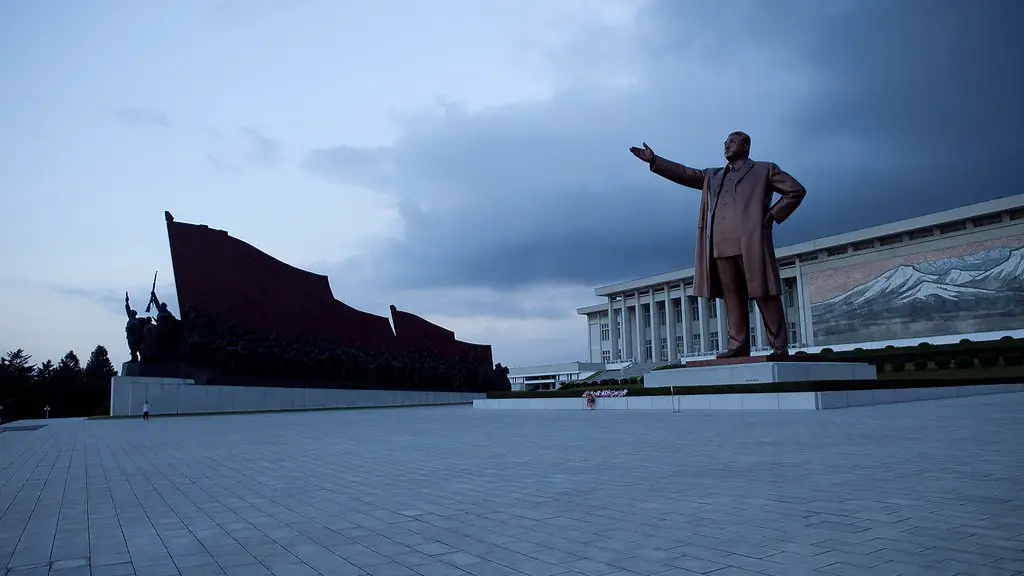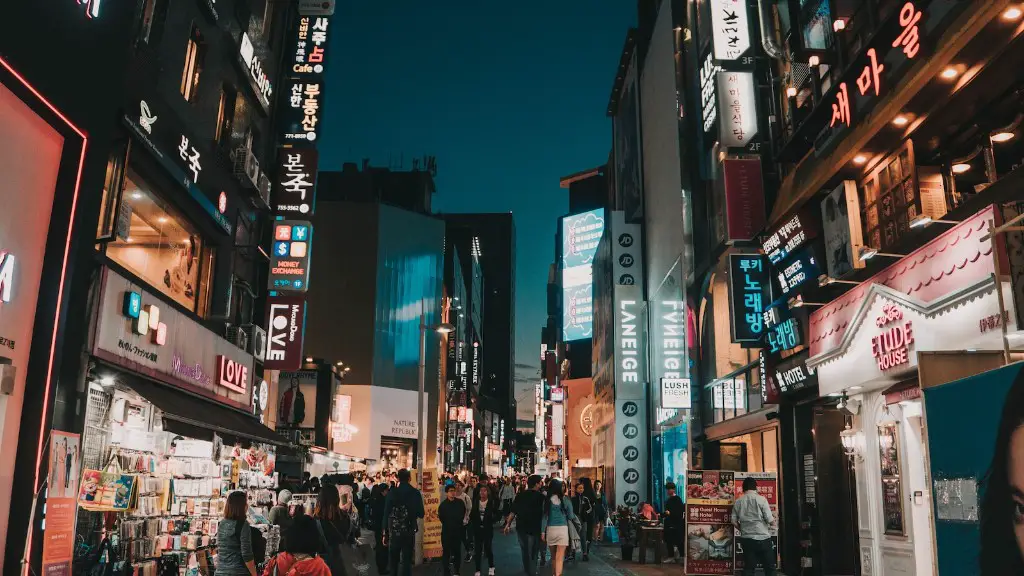At the heart of the Korean peninsula, lies the bustling and vibrant city that is Seoul. As the capital city of South Korea, it is characterised by its advanced infrastructure, modern cityscape and deepening economic standing in the world. However, while its growing stature as a world power continues to flourish, one looming question lurks around the back of many people’s minds – is Seoul safe from the threat of North Korea?
Though the two countries have been under a tense stalemate since the armistice of the Korean War in 1953, sporadic outbursts of aggression of North Korean forces to the south has ensured that many remain vigilant over their security. In 2010, North Korea torpedoed a South Korean navy vessel, killing 46 sailors in what is regarded as the most destructive attack from North Korea since the war. This raises a myriad of questions over Seoul’s defence strategies, raising concerns over its population of 10 million people and its stability as an exponent of modernity and culture.
It goes without saying, the concept of security is a complex one. It is often tied to notions of stability and assurance in a territorial battle against the uncertainties of potential or potentialities of threats. Fortunately for Seoul, the both the South Korean and US armed forces are some of the best equipped and trained in the entire world. Such strategic cooperation complements the joint security treaties between the parties which set regulations in military matters and civil incidents. Adding to Seoul’s sense of security are its anti-missile capabilities and legions of expert personnel.
However, this is not to say that stability is assured. The pressures of a geopolitical stand off that calls on South Korea to constantly be prepared against the backdrop of an evolving nuclear arms race means that Seoul requires more than a few tactics to ensure it remains safe. Such an event has been echoed by South Korean government advisor Han Yong-sik, who during a recent interview on KBS said that the economic and diplomatic standoff between China and North Korea has put North Korea in precarious position.
Besides the government approach, there have been a myriad of NGO initiatives to develop a stronger sense of security in Seoul. For instance, the Seoul Comprehensive Seoul Master Plan has focused on securing its environment through green innovations such as investment on clean energy sources and walking paths for communities. These initiatives are crucial in terms of long-term security as not only does it provide safety, it also seeks to build a stronger community among its inhabitants.
On the other hand, a vast majority of Seoul-based civilians feel somewhat safe due to the military guard set up throughout the city. This extends to the minorities in Seoul who feel that they are well protected under this assurance and such features have been praised by international humanitarian organisations.
Overall, it is apparent that Seoul has taken a wide range of measures to ensure its safety against North Korea. Such measures leaves one to state that Seoul is generally safe – but security is a dynamic and ever-evolving concept.
South Korean’s Perspective
For many South Korean citizens living in Seoul, this topic is a matter close to heart. After all, the persistent threat of North Korea has shaped much of the South Korean psyche, who, in the face of this threat have developed a particularly strong sense of nationalism and national consciousness. This is primarily due to the long-held fear of a North Korean invasion that few South Koreans can ignore, let alone forget. As a result, many from the South have clamoured for stronger security protocols to ensure the protection of Seoul.
Of course, such fear has its basis on historical precedents – after all, North Korea has a long history of aggression against South Korea. Incidents such as the ‘Ax Murder Incident’ of 1976, when two US soldiers were bludgeoned to death by North Korean forces remains a vivid reminder of the severity of their actions. As a result of this, it is in the South Koreans that the strongest responses can be seen.
Conversely, South Koreans also pride themselves in their resilience. For example, after the attack by North Korea on the Daecheong Island in 2010, South Korea responded with a greater increase in its overall military readiness. Such a move is indicative of how South Koreans have responded to such aggressions with an unwavering composure and willingness to fight for their cause.
In the face of constantly shifting threats from the North, the people of South Korea have played a crucial part in developing a stronger sense of security in Seoul. This not only extends to military preparedness, but also to civil groups and the general mindset of its citizens – the exact kind of initiatives and commitments required to ensure Seoul stays safe from the constant threat of North Korea.
USA Involvement
On the other hand, the United States of America has just as significant of a presence in ensuring Seoul’s safety. Since August 29, 2016, The US and South Korea have been in a military-alliance treaty, with both parties already having gone through numerous joint exercises to strengthen the cooperation between them. With over 28,000 US troops based in South Korea, it is hard to ignore the US’s impact in ensuring Seoul’s safety from North Korea.
To the US, South Korea plays an important geo-political role in their ambition for world-wide reach. Since the mid-20th century, the US has maintained a constant presence in South Korea in order to protect its interests and stability, with a strong degree of economic, cultural and military influence. Recent economic reports also suggests that this influence is growing with every passing year. Therefore, it is natural that the US takes an active role in regards to providing security in South Korea. This has manifested itself through various policy agreements and the stationing of US troops.
This ongoing military participation has of course been met with mixed reviews among the South Korean people. While some may indeed welcome it as a reminder of the US’ support, many others regard it with distrust, seeing the stationing of US troops as a throwback to the US’ imperialist past. Such criticism has since grown since President Donald Trump’s election in 2017, with many criticising the US’ foreign policy for its lack of consistency.
Nevertheless, the US cooperation in terms of security in South Korea should not be overlooked. While the US often vies for global ambition, its long-time partnership with Seoul and their military partnership have ultimately allowed for the safety of Seoul, allowing for the city to continue its path towards urban progress and success.
Risks and Benefits
That said, the sense of security in Seoul should not be easy taken for granted. In spite of the security measures taken by the South and the US, one cannot disregard the de escalatory and often unwieldy relations that the nation countries share. This is particularly true with North Korean leader Kim Jong Un – an unpredictable leader, whose goals and ambitions are heavily muddled in mist. This, in turn, paints a grim picture of how Korean peninsula relations might play out if tensions begin to escalate, potentially leading to an event that could spell disaster for South Korea and its people.
With that, one must take note of the consequences of such a reality. If a conflict, big or small, were to emerge between North and South, the risks are manifold. For starters, one must ponder about the potential destabilisation of Seoul, with its population of 10 million people and its bustling economy. Moreover, a full-on conflict would likely cause a massive humanitarian disaster, both for South Korea and for the North. This would have a long-lasting effect, presenting significant problems for the peninsula and its people for years to come.
Nevertheless, there are still benefits to be taken from the current security in Seoul. The relative peace that is enjoyed today has allowed Seoul to flourish economically and socially, having become a staple of modern architecture, culture and cuisine. Technological advancements also contributes to this, as the city is home to numerous cutting-edge industries, such as autonomous vehicles, robotics, AI and ICT. In addition, the city is home to the world’s largest broadband network, providing high-speed internet access to the public with few to no interruptions.
Overall, Seoul’s safety should not be taken for granted. Despite the many advantages of having a relatively safe city, security is a dynamic concept and much of it depends on the natures of relationships between North and South Korea. A constant vigil is needed to ensure stability and safety for its citizens. If a conflict was to arise, the consequences could be dire, making an already difficult situation a potentially life-threatening one. The sense of security in Seoul is a privilege, one that the citizens should not take lightly.
Special Considerations
This sense of security however, does not extend to everyone. The North-South Korean conflict plays an influential role in not only the external security of South Korea, but also the safety of its minorities. Many of them have found it hard to integrate, with cultural divides serve as a barrier in assimilating into the new environment. Allegations of xenophobia, racism and political exclusion are common, with many minorities plight sometimes going unnoticed.
Such an issue was presented by Dr. Kwak Hyeon-cheol, a former UN Human Rights Commissioner and advocate for the rights of minorities. He believes that the North-South Korean conflict is an influential factor in the marginalisation of these minorities, as the political tensions distract from the fundamental rights these people have in Seoul. In the words of Dr. Kwak himself, ‘the lives of these minority are at stake in the conflict. We must make sure their rights are respected and their plights are heard’.
Fortunately, there are steps being taken by civil groups and minorities that aim to create a more cohesive environment between the Seoulites. The city is home to various multicultural communities, many of them formed by Koreans who have returned from abroad as well as international migrants who have made the city their home. Such organisations create a strong sense of solidarity and are crucial in creating a sense of security in Seoul.
In the end, the North-South Korean conflict affects all of those living in Seoul, regardless of race, culture or creed. While Seoul is generally safe from a physical point of view, it is important to remember that there are still a variety of issues that are faced in this current climate. It is thus the responsibility of all of us to ensure that the culture of safety prevails and that everyone is protected, regardless of their origins.





